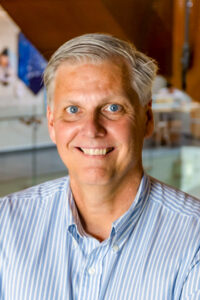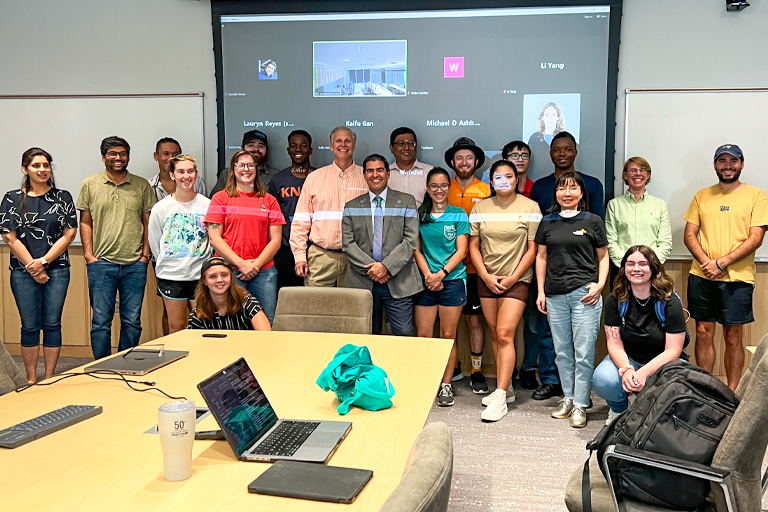 For the fusion industry to continue to grow and succeed, universities will need to play an essential role in the process, according to three professors from major research institutions.
For the fusion industry to continue to grow and succeed, universities will need to play an essential role in the process, according to three professors from major research institutions.
Brian D. Wirth, the UT-ORNL Governor’s Chair of Computational Nuclear Engineering, recently collaborated with Dennis Whyte, the Hitachi America Professor of Engineering and director of the Plasma Science and Fusion Center at MIT, and Carlos Paz-Soldan, an associate professor of applied physics and applied mathematics at Columbia University, to write an opinion piece urging universities to provide more resources dedicated to fusion energy.
The paper, titled “The academic research ecosystem required to support the development of fusion energy,” was recently published in the journal Physics of Plasmas as part of a special collection called “Private Fusion Research: Opportunities and Challenges in Plasma Science.”
Other news sources:
The paper was cited in a story in MIT News.
“The ultimate message for me is the time is ripe to invest in faculty and research that will be done at universities as we educate, mentor and train students in these technology programs that will contribute to what is hopefully a global fusion industry,” Wirth said. “The universities are very key and important partners in that.”
Given the billions of dollars raised by private companies with promises of different concepts for how to generate fusion power, the authors suggest more research and a significant workforce and advanced technology will be required. To do it all economically and reliably, an ecosystem needs to be developed at universities to help support the training.
The authors say the importance of that role is not reflected in the number of fusion-oriented faculty and educational channels currently available.
“It’s going to require technicians, in addition to scientists and engineers, at the bachelor’s, master’s and PhD level to make it happen,” Wirth said. “We wanted to emphasize how important it is that universities also invest and build up the faculty that are knowledgeable in many areas. It doesn’t necessarily need to be just in physics or electrical engineering or nuclear engineering because we need all sorts of different people.”
UT has seven faculty members in nuclear engineering who are actively involved in research that is relevant to fusion energy, according to Wirth. Along with its proximity to ORNL, the university also has strong capabilities in the physics department for magnet characterization and the mechanical engineering department and material science departments in material sciences and advanced manufacturing, he said.

Jean Paul Allain poses with UT students and faculty during a visit to the University of Tennessee, Knoxville.
UT recently hosted Jean Paul Allain, the assistant director of Fusion Energy Sciences (FES) in the Department of Energy Office of Science.
“UT is well recognized by the DOE, and Dr. Allain understands how much we have to contribute to the publicly funded push toward meeting this bold decadal vision of fusion,” Wirth said. “There is a tremendous amount of work and tremendous opportunity for our universities in fusion energy, and UT is really well positioned to contribute to that.”
Contact
Rhiannon Potkey (865-974-0683, rpotkey@utk.edu)